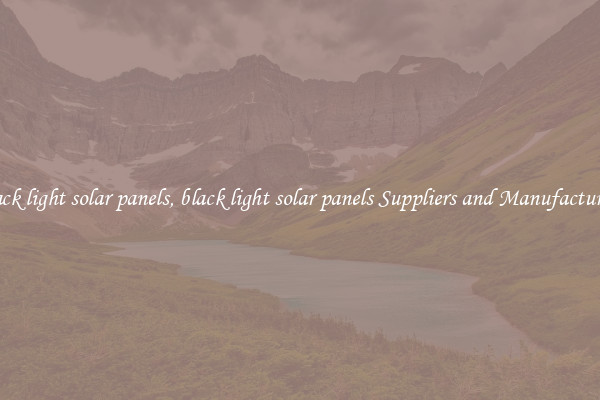black light solar panels, black light solar panels Suppliers and Manufacturers
As the demand for renewable energy sources continues to grow, solar panels have become increasingly popular for their ability to harness the power of the sun and convert it into electricity. In recent years, a new innovation in solar panel technology has emerged - black light solar panels.

Black light solar panels are a type of solar panel that is specifically designed to absorb as much sunlight as possible, even in low light conditions. This allows them to be more efficient in generating electricity, especially in areas where sunlight is not always abundant.
One of the key features of black light solar panels is their dark, almost black color. This color helps the panels to absorb more sunlight, as dark colors are able to absorb more light energy than lighter colors. This means that black light solar panels are able to generate more electricity, even on cloudy or overcast days.
There are several suppliers and manufacturers of black light solar panels in the market today. These companies offer a range of products that are designed to meet the needs of residential, commercial, and industrial customers. Some of the leading suppliers and manufacturers of black light solar panels include SunPower, Canadian Solar, and Trina Solar.
These companies have developed advanced technologies and manufacturing processes to produce high-quality black light solar panels that are efficient, durable, and cost-effective. They use the latest materials and techniques to ensure that their products are able to withstand harsh weather conditions and provide reliable performance for many years.
When considering black light solar panels for your home or business, it is important to research the suppliers and manufacturers in order to find the best product for your needs. Look for companies that have a proven track record of producing high-quality solar panels and that offer warranties and guarantees for their products.
Overall, black light solar panels offer a promising solution for those looking to harness the power of the sun and reduce their reliance on traditional energy sources. With continued advancements in technology and manufacturing processes, these panels are likely to become even more efficient and affordable in the years to come.

View details

View details

View details

View details








